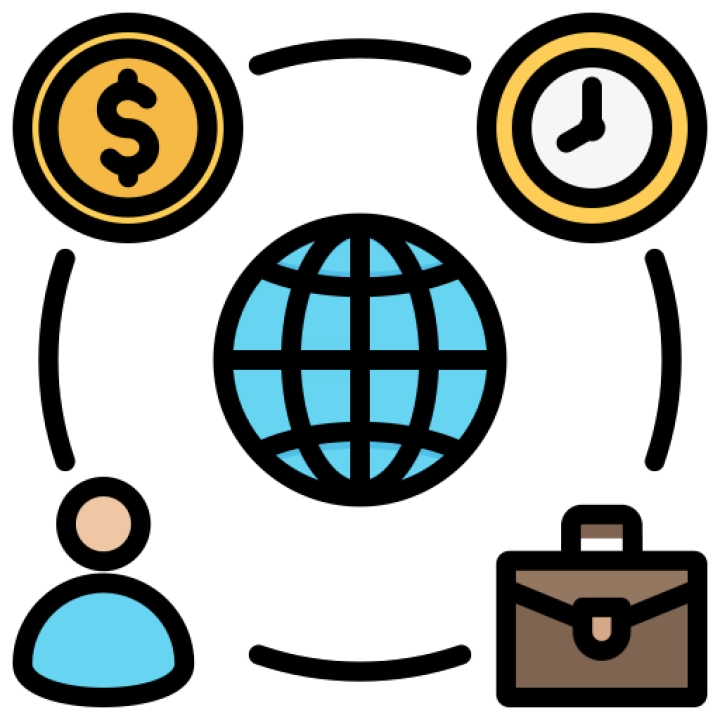International Trade and Business Management: A Global Perspective
International Trade and Business Management focuses on the exchange of goods, services, and capital across national borders, combining elements of economics, business strategy, and cross-cultural management to navigate the complexities of global markets.
1. Core Components of International Trade & Business
| Area | Key Focus | Examples |
|---|---|---|
| Global Market Analysis | Studying international demand, competition, and economic trends | Emerging market assessments |
| Trade Regulations | Understanding tariffs, quotas, and trade agreements (WTO, NAFTA, RCEP) | Customs compliance procedures |
| Export-Import Operations | Managing logistics, documentation, and payment methods (letters of credit) | Incoterms (FOB, CIF, DDP) |
| Foreign Direct Investment (FDI) | Strategies for overseas business expansion and joint ventures | Market entry modes (licensing, M&A) |
| Cross-Cultural Management | Navigating business etiquette, negotiation styles, and leadership differences | Hofstede's cultural dimensions |
2. Career Opportunities in International Trade & Business
| Job Role | Responsibilities | Potential Employers |
|---|---|---|
| International Trade Specialist | Develops export/import strategies, ensures compliance | Multinational corporations (MNCs), trade agencies |
| Global Supply Chain Manager | Oversees procurement, logistics, and distribution | Amazon, Maersk, DHL |
| Foreign Market Analyst | Researches economic trends and competitor strategies | Bloomberg, World Bank, consulting firms |
| Business Development Manager (International) | Identifies and expands into new markets | Tech startups, manufacturing firms |
| Trade Compliance Officer | Ensures adherence to international trade laws | Government agencies (e.g., U.S. ITA) |
3. Essential Skills for Success
✔ Global Economic Awareness – Understanding exchange rates, trade policies, and geopolitical risks.
✔ Negotiation & Diplomacy – Dealing with international partners and resolving disputes.
✔ Data Analytics – Using tools like SAP, Tableau, or Bloomberg Terminal for market insights.
✔ Language Proficiency – Fluency in key business languages (e.g., Mandarin, Spanish, Arabic).
✔ Adaptability – Adjusting strategies for different legal and cultural environments.
4. Educational Pathways & Certifications
- Bachelor’s Degree in:
- International Business
- Economics
- Supply Chain Management
- Master’s (MBA or MSc in International Trade) for leadership roles.
- Professional Certifications:
- Certified Global Business Professional (CGBP)
- Certified International Trade Professional (CITP)
- Six Sigma (for process optimization in global operations)
5. Emerging Trends in International Business
🌍 Digital Trade – E-commerce platforms (Alibaba, Amazon Global) and blockchain for secure transactions.
🌍 Sustainability & ESG Compliance – Green supply chains and ethical sourcing.
🌍 Nearshoring/Reshoring – Shifting supply chains due to geopolitical tensions (e.g., U.S.-China trade war).
🌍 Regional Trade Blocs – Growth of agreements like AfCFTA and CPTPP.
6. Challenges in Global Trade
⚠ Trade Wars & Protectionism – Tariffs and sanctions disrupting supply chains.
⚠ Currency Fluctuations – Impact on pricing and profitability.
⚠ Regulatory Complexity – Differing labor, environmental, and product safety laws.
Is International Trade & Business Management Right for You?
✅ Choose this field if:
- You enjoy global travel, cultural diversity, and strategic problem-solving.
- You want to work in a fast-paced, interconnected business environment.
- You’re interested in economics, law, and geopolitics.
❌ Avoid if:
- You prefer domestic-only business operations.
- You struggle with uncertainty or rapid market changes.

